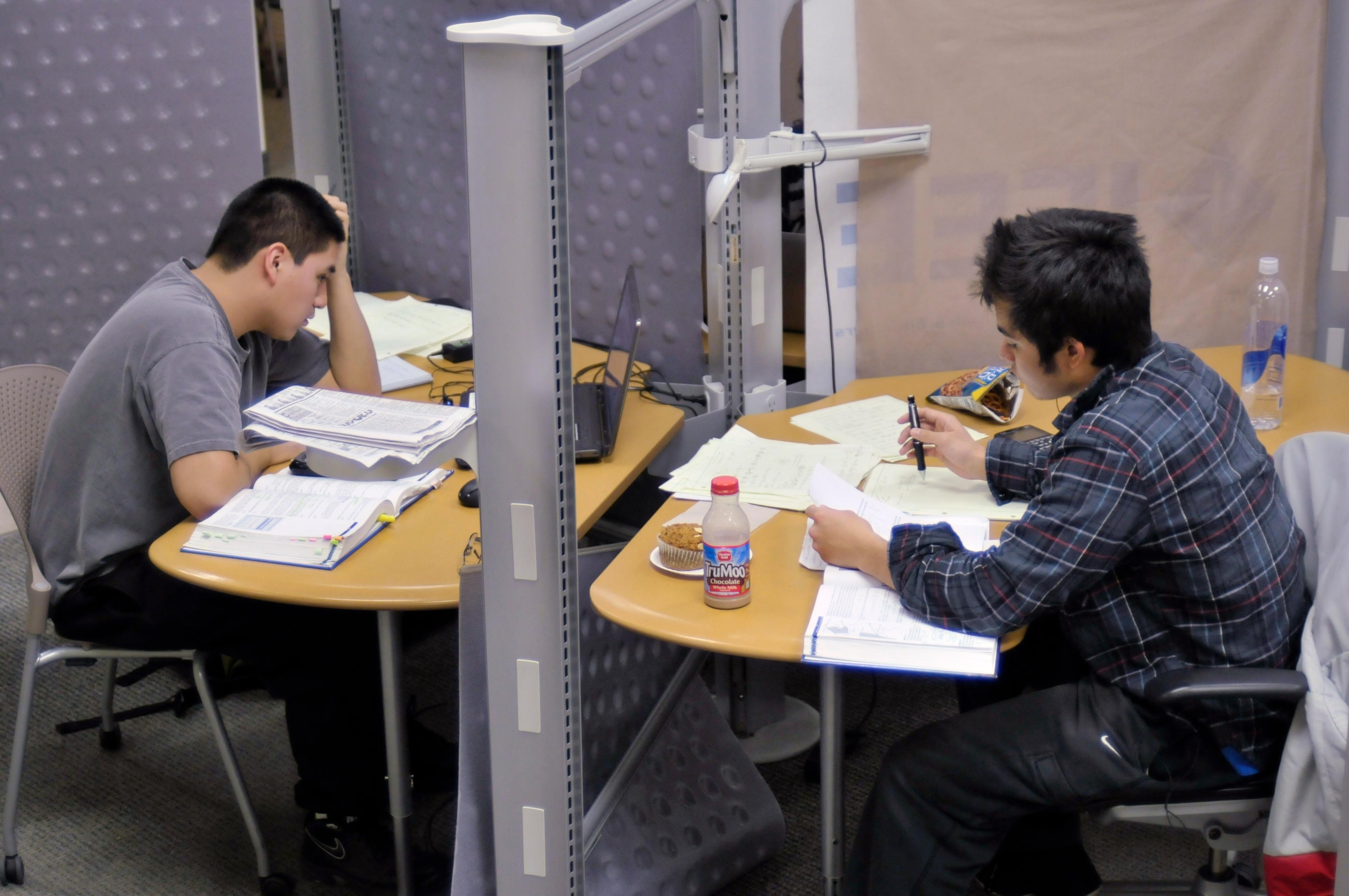Engineers spend most time on school work
A recent survey revealed the average engineering major studies about 20 hours per week during their senior year of college, while taking the least amount of time for outside activities compared to business and social science majors, who studied about 14 hours per week.
Senior and mechanical engineering major Adam Norris said he actually considers 19-20 hours a good week.
“Just the other weekend I spent over 25 hours between Friday and Sunday finishing up a project,” Norris said. “I then had around 10 hours of other homework to finish up, and that was just the weekend. Most days I put in an average of 5 hours of homework or study time, but that varies drastically week to week — usually at an increase, rather than a decrease.”
According to the National Survey of Student Engagement, 42 percent of engineering majors reported spending at least 20 hours per week, if not more, studying.
According to the study, from most to least after engineering the order went as follows: physical sciences, life sciences, arts and humanities, education and social sciences, with business majors reportedly studying the least.
One in five business students claimed to spend 20 hours or more studying in an average week, according to the study.
Raysa Suazo, a senior majoring in electrical engineering, said she dedicates 15-25 hours in a week to studying, and she finds the field of engineering rewarding. The field gives her the confidence of knowing she is capable of solving problems in engineering and life in general, she said.
“I started studying engineering because I like challenges, and I also like to solve problems and find answers,” Suazo said.
According to national rankings, USU’s aerospace engineering program placed second in the nation for receiving research funding, as well as having the second-oldest undergraduate research program in the nation, behind Massachusetts Institute of Technology.
“I love USU,” said Candace Clark, a senior majoring in biological engineering, “I especially love USU engineering.”
Suazo said, “I have enjoyed studying engineering at USU. Professors are always concerned and (make sure) I am learning, and they always help me with any questions I may have.”
Norris said he wishes the classes for some of the core engineering courses weren’t so large, but he likes how they are taught by professors rather than graduate students and he feels USU has a good program.
Beside studying the most, engineering students were found to spend the least amount of time on non-curricular activities such as work, family and other interests.
While Norris said this was partially true for him, he said he spends a significant amount of time at work, with his family and engaged in other activities.
“I feel pressure to make sure I have a well-balanced educational experience,” Norris said. “Many engineers will graduate from this university and others — and I feel I need a way to set myself apart from them.”
The survey also stated although engineering students spend the most time studying, 22 percent said they often go to class without all of their homework completed, compared to the 14 to 16 percent of seniors in other majors.
“Occasionally, I will go to class without completing my homework,” Clark said. “Often it’s a case of too many things due at the same time. If I’m unable to finish all of it, I usually try to get at least something done on my assignments.”
“What matters is the different approaches that you use to solve the problems assigned,” Suazo said, “the key to solving (the problem of incomplete assignments) is a strict organization of your time.”
Norris said sometimes he can’t physically finish everything, but he sacrifices his sleep and gets the job done.
“I’ve always had at least one job and have been involved in research labs and service clubs,” he said. “There have been at least two semesters where I averaged between four and five hours of sleep for the duration of the semester just to get everything done.”
“Schoolwork does take up a lot of time. I’ve been lucky to find jobs that correspond to my major, which helps to cement concepts and ideas I’ve learned in class while providing income and work experience,” Clark said. “It is hard to fit in other activities outside of school, but most engineering students become very adept at time management so they can fit in other activities.”
Clark also said engineering has been rewarding to study.
“I’ve gained scientific and technical knowledge,” Clark said, “but I’ve also learned time management and problem solving skills that will continue to help me in my future.”
– amber.murdoch@aggiemail.usu.edu

